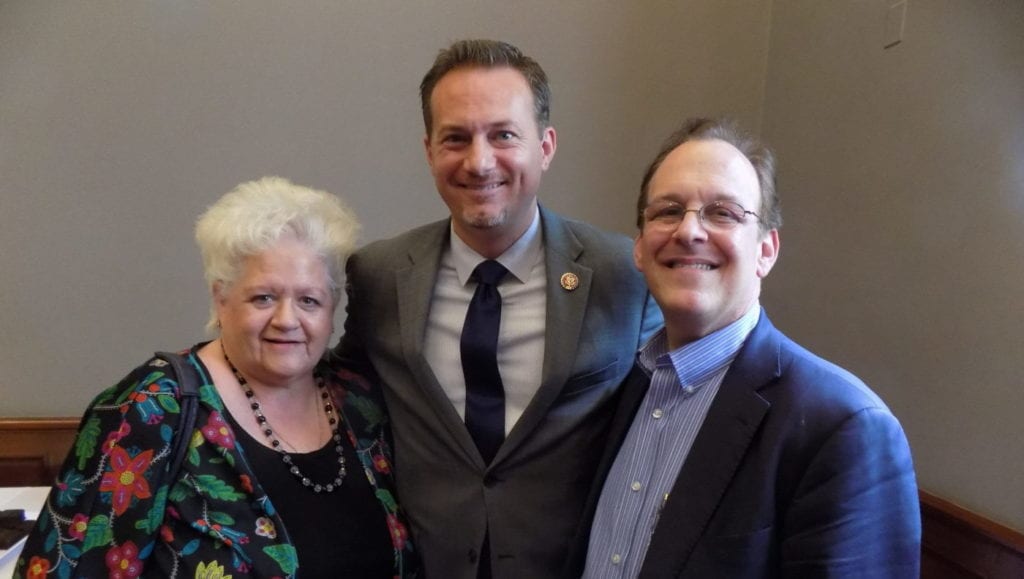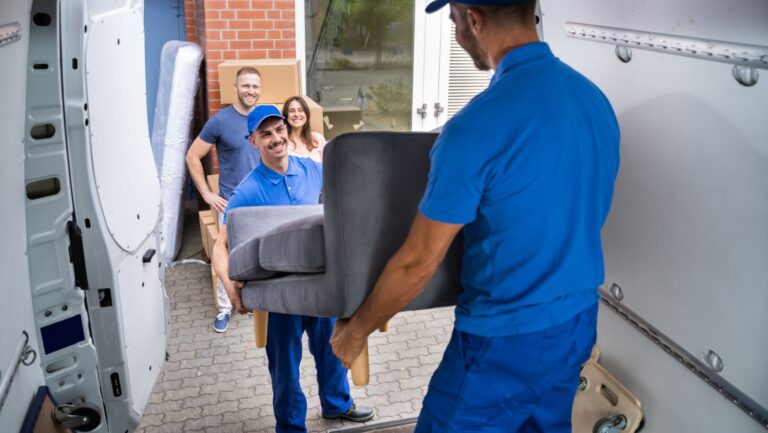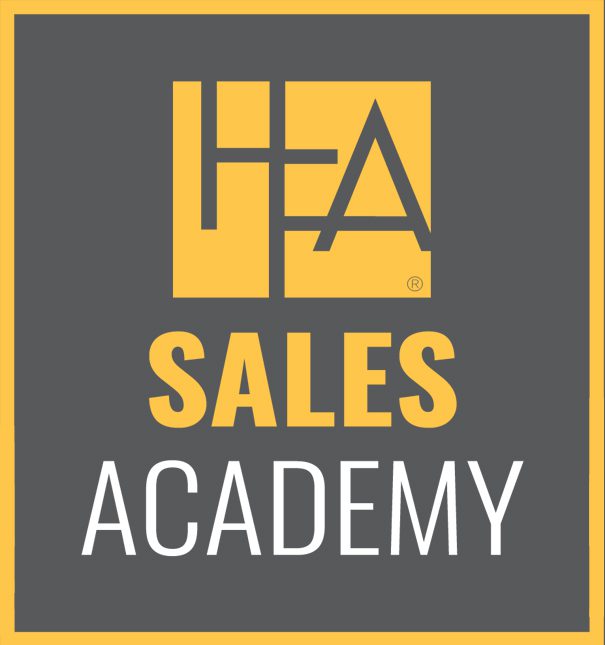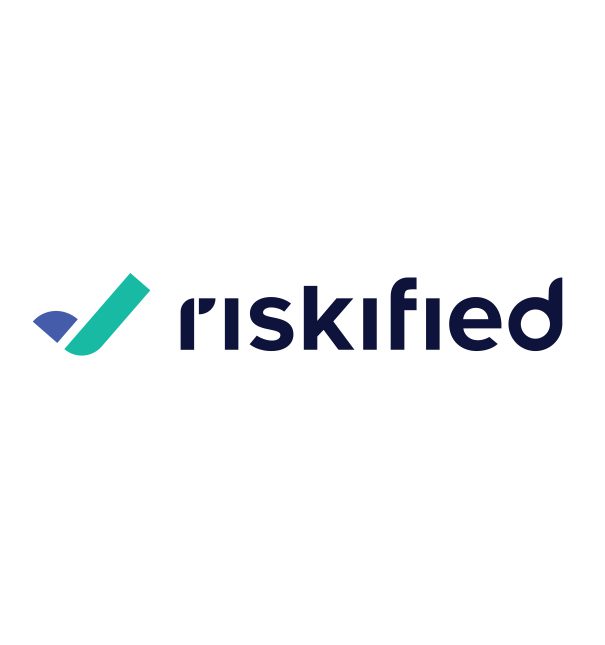At one point during the past year, Chris Andresen commented that the furniture tip-over issue was playing out on a four-dimensional chessboard.
The senior vice president of Dutko GR, who monitors legislative and regulatory activity in Washington, D.C., for the Home Furnishings Association, wasn’t exaggerating.
The STURDY Act was working its way through the U.S. House of Representatives. ASTM International was revising its voluntary stability standard. The Consumer Products Safety Commission was engaged in a mandatory rulemaking process. The New York state legislature was moving toward enactment of Harper’s Law.
Perhaps in no previous year had there been so much activity – like a chess game in four dimensions – on this serious safety concern.
If you followed government relations reports in HFA’s magazine, newsletters and blog posts, you know all about it. If not, you may be missing information that’s very important for your business. After all, you don’t want to sell furniture that doesn’t comply with safety standards. You don’t want to see a recall of chests or dressers you’ve sold to your customers. You definitely don’t want to sell any product that could end up hurting someone, especially a child.
Netflix recently drew more attention with its documentary series “Broken.” The HFA welcomes the added focus on tip-over dangers.
Taxes, Hours of Service, flammability, website accessibility …
The tip-over issue is far from alone when it comes to public policy matters that impact the home furnishings industry. That’s why Andresen’s work, supported by HFA’s Government Relations Action Team and staff liaison Doug Clark, is urgent. They keep you informed and try to influence decisions in the best interests of HFA members.
During 2019, HFA acted on its own and as part of broad business coalitions addressing important issues. It sent letters to governors, members of Congress and even President Donald Trump. It pressed for free trade, a tax provision favorable to furniture retailers, a clear standard for business website compliance with the Americans with Disabilities Act, a uniform flammability standard for upholstered furniture and bedding, sales-tax collection requirements for remote, online vendors, flexible Hours of Service regulations and many other measures.
“One of the core objectives of the HFA is advocacy for the furniture industry,” said Jesús R. Capó, president of the association’s Board of Directors.
“The HFA Government Relations Action Team coordinates our advocacy efforts before the legislative and executive branches and other governmental entities, including local governments, on issues of importance to our industry,” added Capó, who is vice president and chief information officer for El Dorado Furniture in Miami Gardens, Fla. “Ultimately, our main goal is looking out for the best interest of our members. There is no other group doing what we do. It took me some time to understand the tremendous importance and responsibility carried by the GRAT, but after seeing them in action, I came to realize that they may not be the sexiest but are certainly one of the most important benefits that the HFA provides.”
Join HFA’s Government Relations Action Team
“After my first year as being a part of the GRAT, I continue to realize how much value we all benefit and receive from this team,” said Matt Schultz, president of John V Schultz Furniture in Erie, Pa. Schultz became team leader during 2019.
“Personally, I was provided direct access to lawmakers in D.C. during the annual HFA Fly-In to raise awareness and concerns regarding the QIP drafting error that has impacted the tax benefits we receive when remodeling our stores. In addition, throughout the year the team monitors and keeps us all informed on important legislative issues that impact our businesses. Without their help, it would be very hard to track it all.”
The Government Relations Action Team is not an exclusive group. All it takes to participate is interest. It’s made up of HFA members – and not necessarily business owners, presidents or CEOs. They hold monthly conference calls and otherwise communicate mostly via emails. Many of its members attend the annual Washington Fly-In in May, where they meet with members of Congress, leaders of regulatory agencies and other key decision-makers. The GRAT reports to the HFA Board of Directors.
To join, or if you’d just like to add your name to the GRAT email list, please contact Doug Clark at 916-757-1167 or dclark@myhfa.org.
(Register for HFA’s government relations webinar with Andresen and Clark at 2 p.m. ET Dec. 11.)
Urge your lawmakers to fix critical tax error
The chief concern HFA members brought to Washington, D.C., during the May Fly-In was the QIP tax error. QIP stands for Qualified Improvement Property. In 2017, Congress meant to allow a greater tax deduction for investments in retail property. A drafting error did the opposite. Thanks to lobbying by the HFA and many other business groups, most members of the U.S. House and Senate support legislation to fix the glitch and encourage business investment. But leaders have failed so far to allow them to vote.
Now there’s a website where you can find more information about this problem and send messages to your senators and representative. Ask them to pressure their leaders to advance this critical legislation. Your voices are needed now!
Washington update
Following two weeks of impeachment hearings in the House Intelligence Committee, the focus turned to the House Judiciary Committee as it holds its own hearings before possibly drafting formal articles of impeachment. If it does, the House could vote on impeachment before the end of 2019. The witnesses who have already testified did little to shift the narrative on impeachment as the respective camps, drawn along party lines, have not shifted.
Following the House vote, the Senate will have a more formal impeachment trial, which is presided over by the Supreme Court chief justice. Whether a trial takes two weeks or two months, there is no expectation that the Senate would vote with a two-thirds supermajority to convict President Trump. The fallout from the impeachment exercise, from inquiry to final vote, is unknown, especially as we enter a critical presidential election year.
Tax issues
The Qualified Improvement Property fix, which the HFA has been pushing for all year, remains a top bipartisan priority if a broader deal can be reached on numerous issues, including federal funding and other expiring tax provisions. A QIP fix was given a shot of life with the agreement on Fiscal Year 2020 funding allocations because that could lead to a broader spending deal. Such a deal would be large enough to carry several provisions, including the QIP fix. But the timing of a big legislative vehicle is very uncertain, especially given the impeachment focus and an impending Dec. 20 deadline for a government funding bill.
Furniture stability
The full House of Representatives passed the STURDY Act via voice vote in mid-September. The measure now rests in the Senate, where consumer groups are pressuring senators to advance the STURDY Act.
In the meantime, the Consumer Products Safety Commission is moving forward with a proposed rulemaking on furniture tip-over, with further details potentially coming soon. CPSC staff recently released a report on injuries and fatalities related to furniture instability, which showed an overall decline. The number of incidents reported in 2009 was 44,100, while the November 2019 report showed a decline to 27,100. While the industry continues to focus on safety, CPSC will look at new methods of testing furniture stability.
Trade
The U.S.-China trade war has taken yet another twist as the sides get closer to a “Phase One” deal. Turmoil in Hong Kong has increased tension between the two countries as President Trump recently signed two bills supporting Hong Kong’s autonomy. China strongly objected and reiterated its position that any deal would need to include a rollback of tariffs. Both sides face a Dec. 15 deadline, when 15 percent U.S. tariffs are scheduled to take effect on List 4B imports from China. These include many consumer product categories like electronics, toys and apparel.
Upholstered furniture flammability
Key House and Senate committees approved the Safer Occupancy Furniture Flammability Act (SOFFA) in bipartisan voice votes. The legislation, supported by the HFA, other industry groups, firefighters and consumer and environmental organizations, would set a national upholstered furniture flammability standard based on California Technical Bulletin 117-2013. However, further progress has stalled in both chambers.
ADA website accessibility
HFA member companies in Florida have been the frequent targets of “demand letters” from serial plaintiffs alleging that business websites do not comply with the Americans with Disabilities Act. But the U.S. Department of Justice has refused to provide guidance or set federal standards, which leaves furniture retailers in a very difficult (and costly!) position – either settle the demand or fight the case in court.
This all-too-common story led Sen. Marco Rubio, chairman of the Senate Small Business Committee, and his staff to host a stakeholder roundtable on this issue in Orlando, Fla., recently. HFA member Walker Furniture of Gainesville shared its story and worked with other stakeholders to suggest potential solutions to this growing problem.
Rubio’s staff was pleased with the outcome and ideas coming from the event. We will remain engaged with any member of Congress interested in fixing this problem for furniture retailers.
December state reports
Brief news items of interest from Alaska, Arizona, Arkansas, California, Colorado, Florida, Illinois, Maine, Michigan, Nevada, New Jersey, New York, Pennsylvania, South Carolina, South Dakota and Washington:
Alaska
Representatives of 15 municipalities met in Juneau Nov. 21 to officially establish the Alaska Remote Sellers Sales Tax Commission, Alaska Public Media reported. Its purpose is to require out-of-state, online vendors to collect sales taxes on purchases made by residents of those municipalities.
Alaska does not have a statewide sales tax, but more than 100 local jurisdictions do. Merchants in those communities were at a disadvantage because online competitors did not charge taxes on sales.
More jurisdictions are expected to join the commission, but the original 15 are Adak, Haines, Homer, Juneau, Kenai city, Kenai Peninsula Borough, Kodiak, Ketchikan, Palmer, Seldovia, Seward, Soldotna, Toksook Bay, Wasilla and Wrangell.
The commission set a goal of beginning collections in January.
Arizona
A marijuana legalization measure could go to a statewide ballot in November 2020.
Arkansas
“Gov. Asa Hutchinson’s re-election campaign will focus on winning voter approval for a proposed constitutional amendment that would make Arkansas’ 0.5 percent sales tax for highways and roads permanent,” The Associated Press reports. At a Nov. 26 meeting of the Arkansas Good Roads Foundation, Hutchinson said the proposal is vital to the state’s future. Arkansas officials project the measure would raise about $205 million a year for highways. Voters approved the tax in 2012, but it is set to expire after 10 years.
California
Futons will be covered by California’s mattress recycling program beginning Jan. 1. Retailers will have the same obligations for futons as they do for mattresses, meaning they must register and, if they deliver a futon to a purchaser’s home, offer to remove a used mattress at no charge.
California mattress recycling program adds futons
AB 2998 takes effect Jan. 1. The law prohibits the sale and distribution of juvenile products, upholstered furniture, replacement components of reupholstered furniture and many mattresses if those products or materials contain certain flame-retardant chemicals at levels above 1,000 parts per million. The state’s Bureau of Household Goods and Services has published frequently asked questions.
Minimum wages are going up Jan. 1. Yes, wages. The statewide rate increases to $11 an hour for employers with 25 or fewer workers and $12 an hour for larger employers. But many cities have set their own, higher minimums. Increases taking effect Jan. 1 are:
Cupertino, to $15.35
Daly City, to $13.75
El Cerrito, to $15.37
Los Altos, to $15.40
Menlo Park, to $15
Mountain View, to $16.05
Oakland, to $14.14
Palo Alto, to $15.40
Petaluma, to $15 for employers with 26 or more workers, $14 for smaller employers
Redwood City, to $15.38
San Diego, to $13
San Matteo, to $15.38.
Increases are scheduled in several other cities later in 2020.
Colorado
The state’s minimum wage rises to $12 an hour in 2020. In addition, the state last summer repealed a ban on cities setting their own minimum wage. That opened the door for cities to create their own rates, and Denver was the first to step through, GovDocs reports. Its City Council in late November adopted a plan to raise the citywide minimum wage to $12.85 an hour on Jan. 1, then $14.77 on Jan. 1, 2021, and $15.87 on Jan. 1, 2022.
Gov. Jared Polis told a state task force that he wants the legislature to pass a family and medical paid leave program in 2020, according to coloradopolitics.com. The plan, as introduced in 2019, would have required employers and employees to pay into a state fund. Eligible employees could then receive up to 12 weeks per year of paid family leave for pregnancies and births or medical reasons. Polis urged supporters to be flexible in the terms of the policy to avoid some of the political and business opposition that doomed the legislation this year.
Florida
Gov. Ron DeSantis has called for legislative action to require all employers to use the federal e-Verify system to ensure they don’t hire undocumented workers, the Miami Herald reports.
DeSantis and his legislative allies say the measure will promote public safety and potentially raise wages for blue-collar workers who would no longer have to compete with “cheap, illegal, foreign labor,” the newspaper said. It added: “In the past, e-Verify proposals have been staunchly opposed by Florida’s biggest industries, including tourism and agriculture, as well as the Chamber of Commerce.”
Illinois
Beginning Jan. 1, adults 21 and older may legally possess small amounts of marijuana for personal use. “The Cannabis Act also includes extensive protections for employees,” according to GovDocs. “The law says employers may not discriminate against workers based on use. However, the bill includes language about ‘impairment’ in the workplace, and that can be a gray area for employers and the law. How this situation unfolds is why we will be watching Illinois in 2020.”
Furniture retailers and local governments should benefit from an action taken by the state legislature in November. “Starting in January 2021, locally imposed sales taxes will apply to all online sales, from remote sellers or third party marketplaces,” mystateline.com reports. “That means products purchased online and shipped to Illinois addresses will generate the same tax revenue as products purchased locally.
“Now, a group representing retail shops predicts an online sales tax will bring in an extra $380 million for the state, and another $85 million for local governments. ‘Sales tax is the number one revenue for most local units of government in Illinois. They have seen that bleed away, right, because there has been no mechanism for collecting that tax. Now, thanks to the Supreme Court’s Wayfair decision, there is a mechanism for doing that. And that’s what we put into law,’ said Rob Karr of the Illinois Retail Merchants Association.”
Maine
The state has about $30 million more in its bank account than when lawmakers passed the most recent two-year budget in June, the Press Herald reports. “The biggest chunk of the increase, about $16.6 million, comes from a new law that requires sales tax collection by online retailers like eBay and Amazon.”
Michigan
Recreational marijuana use became legal Dec. 1 for individuals 21 and older. People may possess up to 2.5 ounces on their person and 10 ounces at home. However, employers still have the right to prohibit the use of marijuana in the workplace and to test for it. Employees who violate employer marijuana policies may be subject to discharge.
Nevada
State Labor Commissioner Shannon Chambers last month issued advisory opinions about implementation of the Family Medical Leave Act, which takes effect Jan. 1.
The law applies to employers with 50 or more employees in Nevada. The labor commissioner defined employees as workers employed in 20 or more consecutive work weeks in the current or preceding calendar year. Part-time employees count, but temporary, seasonal and on-call employees do not.
Under the law, employees must give notice of their intent to use leave “as soon as practicable.” The commissioner said that employers should not require advance notice for unforeseeable absences, but 30 days “would be optimal notice for events where the employee knows they need to take paid leave.” Employers should establish a notice requirement in writing that is provided to and signed by each employee.
New Jersey
California’s AB 5 doesn’t take effect until Jan. 1, but it already has inspired a similar measure in New Jersey.
In Trenton, N.J. Sen. Stephen Sweeney filed S4204 in November. Like California’s AB 5, the measure “would make it significantly harder for companies to classify individuals as independent contractors,” according to Sheppard Mullin Richter & Hampton LLP attorneys writing in the National Law Review.
New York
Starting in May 2020, New York City employers will be prohibited from requiring job applicants to submit to pre-employment drug testing for the presence of marijuana or tetrahydrocannabinols as a condition of employment. The law restricts only the testing of prospective employees, so it will have no effect on employer drug-testing programs for current employees.
Pennsylvania
The Philadelphia City Council delayed until April 1, from Jan. 1, the effective date of its “Fair Workweek” ordinance. The measure reinforces scheduling predictability for employees in retail and other businesses. It applies to companies with 250 or more workers in at least 30 facilities worldwide. Employers covered by the law must pay a premium to workers when work times are changed, work location is changed or hours are unscheduled, Bloomberg Law reports.
South Carolina
South Carolina collected nearly $64 million in state sales tax from out-of-state retailers from November 2018 through October 2019, SCNOW reported. The S.C. Department of Revenue has registered nearly 3,800 remote sellers under the requirements of a new sales-tax law enacted in 2018 following the South Dakota v. Wayfair U.S. Supreme Court ruling.
“This means an additional $64 million will be available for education, property tax relief, roads or other needs in South Carolina,” revenue director Hartley Powell said.
South Dakota
A marijuana legalization group is circulating petitions to place several proposals on a statewide ballot in 2020.
Washington
The Washington State House this year failed to pass a consumer privacy bill that cleared the Senate by a 46-1 vote. The author of the legislation, Seattle Democratic Sen. Reuven Carlyle, is circulating a new version that he plans to introduce in January.
The 2019 bill would have given consumers more control over their personal data collected for commercial purposes. It would have applied only to businesses in Washington state that hold data from at least 100,000 consumers or that receive more than 50 percent of gross revenue from the sale of personal information of 25,000 consumers or more – so, probably not many furniture retailers. However, opponents in the state House said the bill wasn’t strict enough.
Retail groups worry that laws giving consumers the right to demand that businesses delete their data would make it difficult or impossible to operate customer loyalty programs or to retain information about customers’ purchasing history and preferences. Washington furniture retailers should contact their state legislators to express these concerns.









